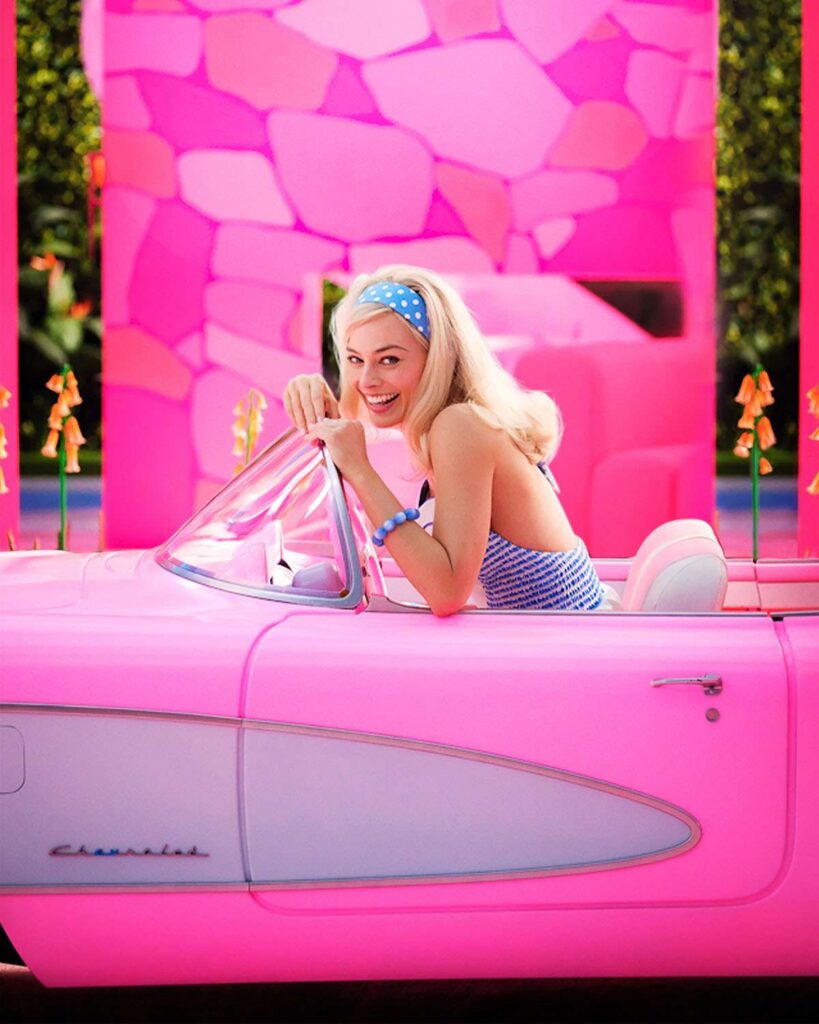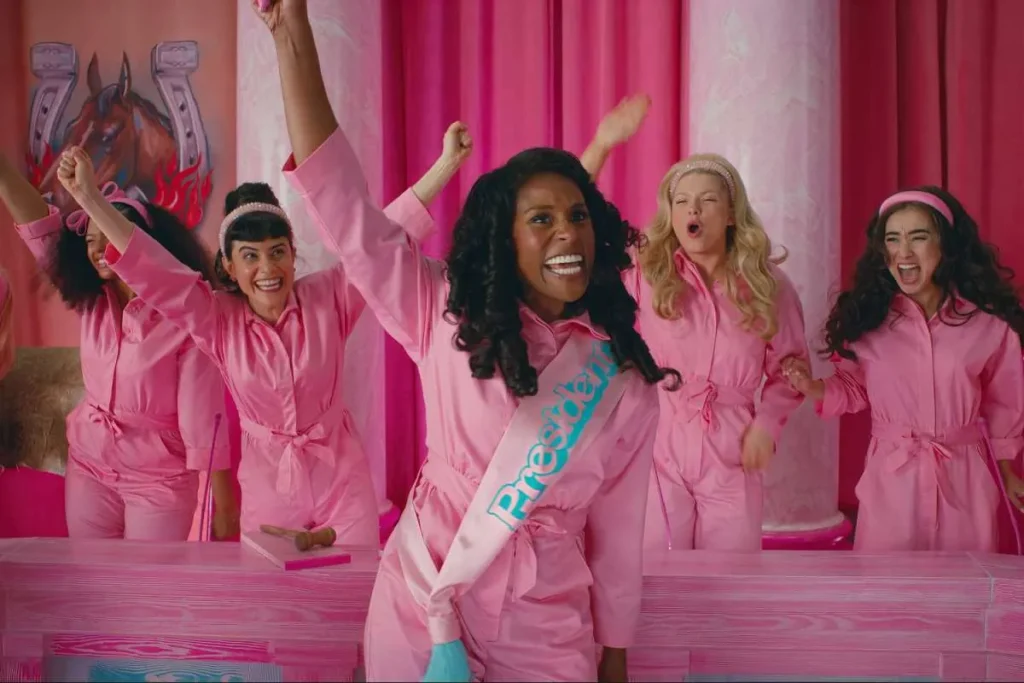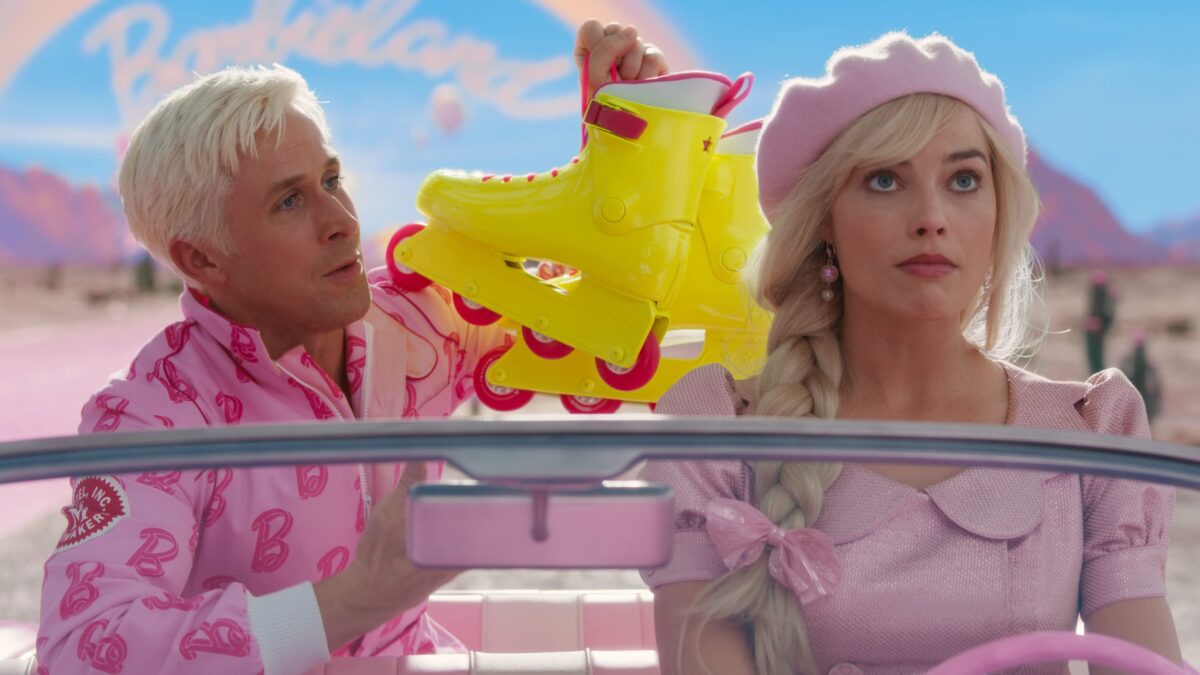I wanted to like Barbie, I really did. But to no one’s surprise, a film funded by a corporation that has made most of its money through ‘sexualised capitalism’ can’t really be expected to critique the very structures that allow it to exist.
Greta Gerwig’s Barbie (along with Oppenheimer, the other half of Barbenheimer), centres on a rip in the space-time continuum that allows people and dolls to move between the Real World and Barbie Land. This rip is caused when Stereotypical Barbie’s human, Gloria, starts experiencing invasive thoughts about existential death and cellulite – causing waves of disruption in Barbie’s ‘perfect world’. Barbie and her not-so boyfriend Ken must travel to the Real World and put an end to Gloria’s existential dread and repair the space-time continuum.

At a glance, Barbie might shine as a beacon of feminism – reclaiming the colour pink and telling women they don’t need to be a president, a doctor, or a Nobel prize winner to be fulfilled and satisfied in life. But it is this very shallow pandering to vague feminist ideals that bothers me.
The advent of the 2010s brought with it a resurgence of feminism that existed primarily on social media. It spoke about ‘girlbossing’ and body positivity, but as time has passed, these ideals have come to be frowned down upon. On a closer inspection, they have done more harm than good to the cause of feminism. Some have even turned into memes. This palatable feminism that appeals to the masses gives participants a false sense of accomplishment by telling them change has come; “Look! Ashley Graham is on the cover of Sports Illustrated!”

Barbie panders to these very ideals. There are obscure mentions about how the doll has been diversified to include so many races and professions, yet most Barbies in the film have a personality that is indistinguishable from one another. There are almost no Barbies with an accent (not even a British one, let alone any other ethnicity) and even though the film has a queer cast, there is no discussion of a possible lesbian Barbie or a non-binary one. Barbie Land only exists within the norms of heteronormative gender binary society.
Yet, my biggest issue with the movie remains with the Mattel CEO. The film clearly shows that one of the biggest problems with a patriarchal society is its inability to grant power to women even in female-oriented spaces. Barbie wonders why the CEO of Mattel, instead of being a powerful woman that hopes to inspire young girls through the doll, is an incompetent and ineffectual man (and that too one that is hinted at being a paedophile, but the film doesn’t think it is necessary to address this for some reason). Barbie decides to reduce this man to nothing but a joke, a secondary storyline in a sitcom played for gags. This is sinister. Instead of questioning the two most powerful structures that the feminist movement has fought against – the patriarchy and capitalism – the movie decides to trivialize its personification, turning the CEO into nothing more than a harmless little joke. It diverts our attention away from the systems that we ought to be questioning, instead helping us fill the corporations’ pockets through ticket sales.

Barbie is a collection of vaguely feminist ideals tied together by a poorly constructed excuse of a storyline. Is it an enjoyable film? Sure, but people were entertained by Kabir Singh too. You might momentarily revel in the jokes and throwaway punchlines that give you a sense of women empowerment, but ultimately, Barbie is but a plastic attempt at feminist filmmaking.

